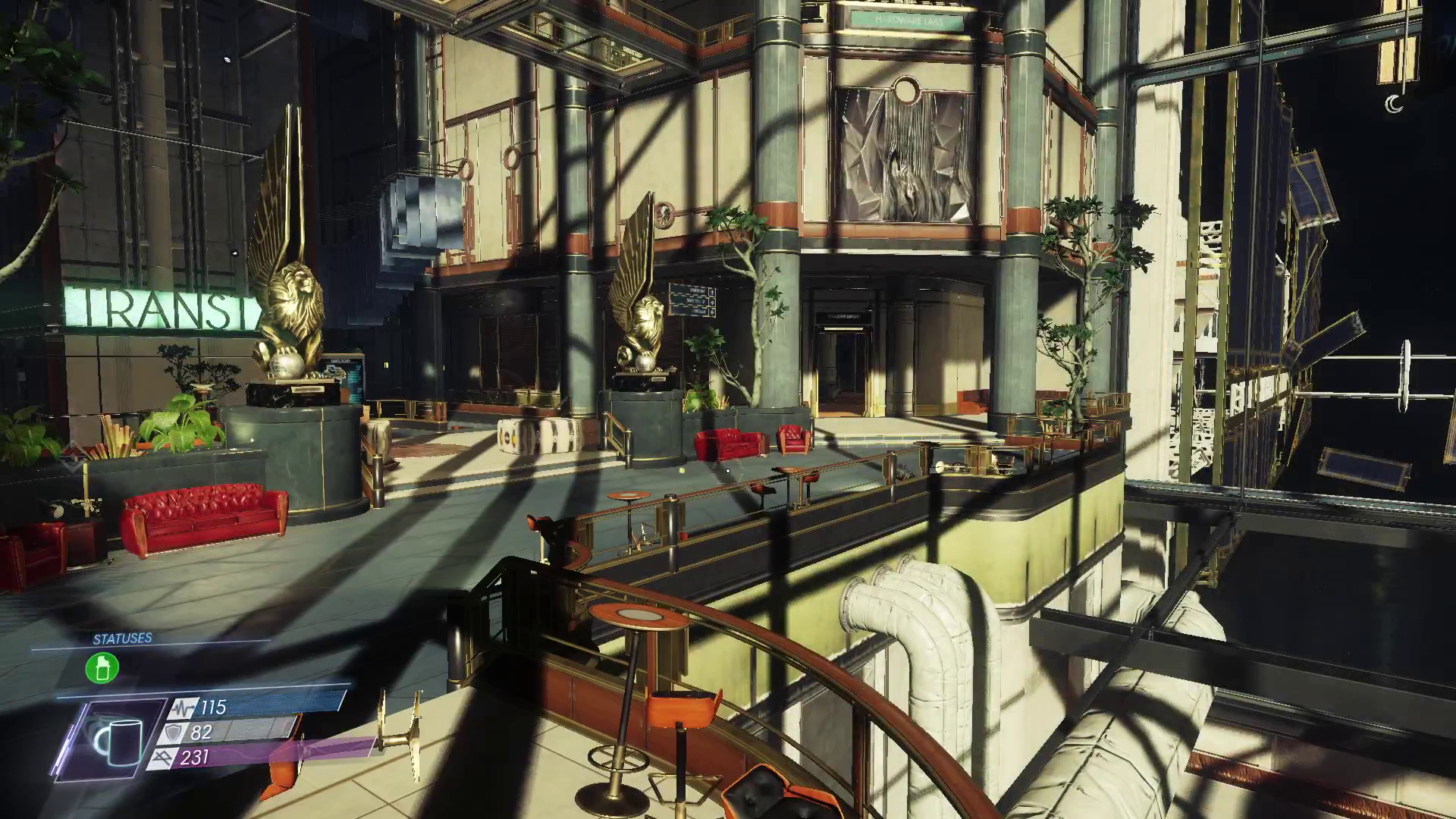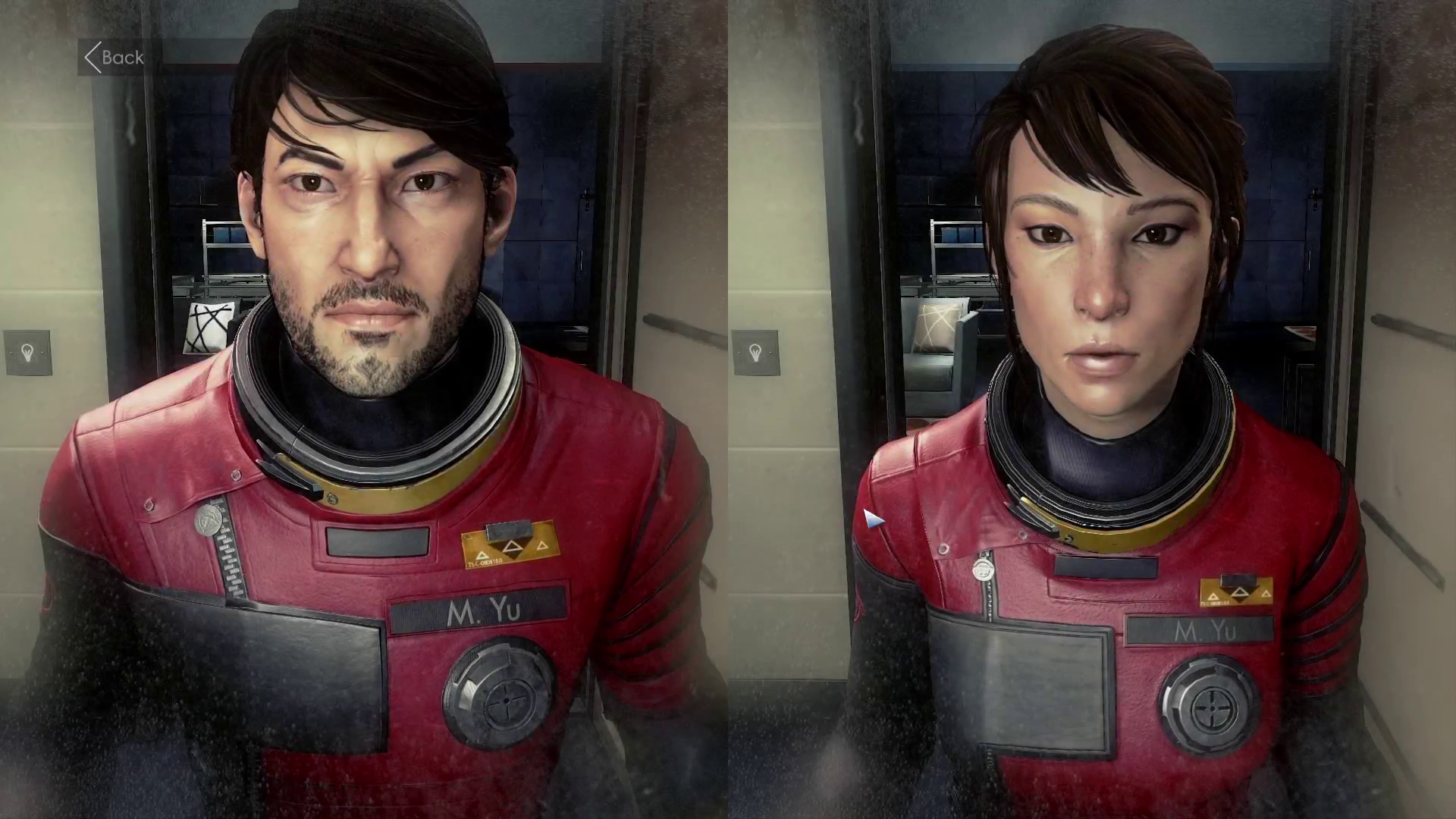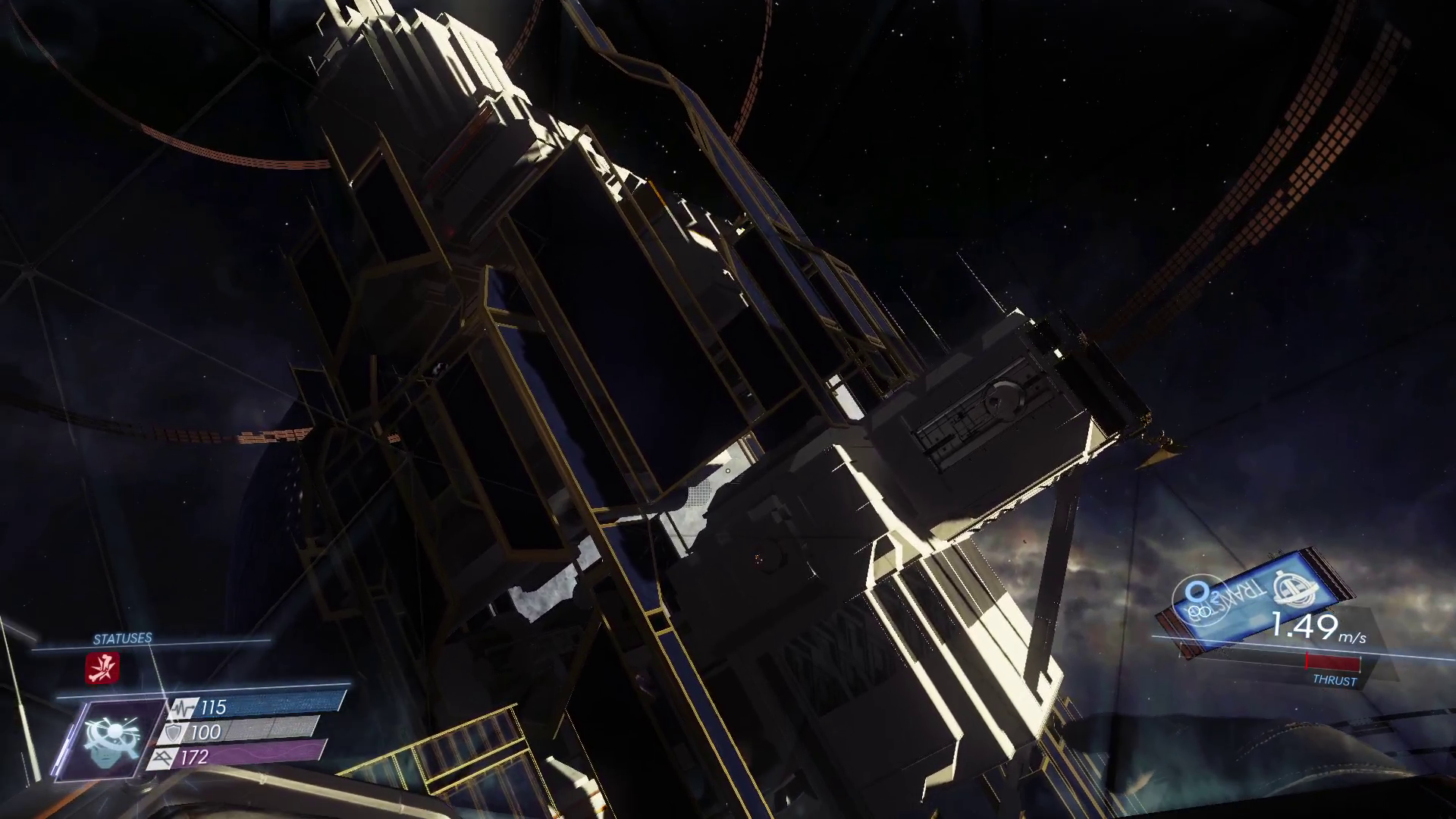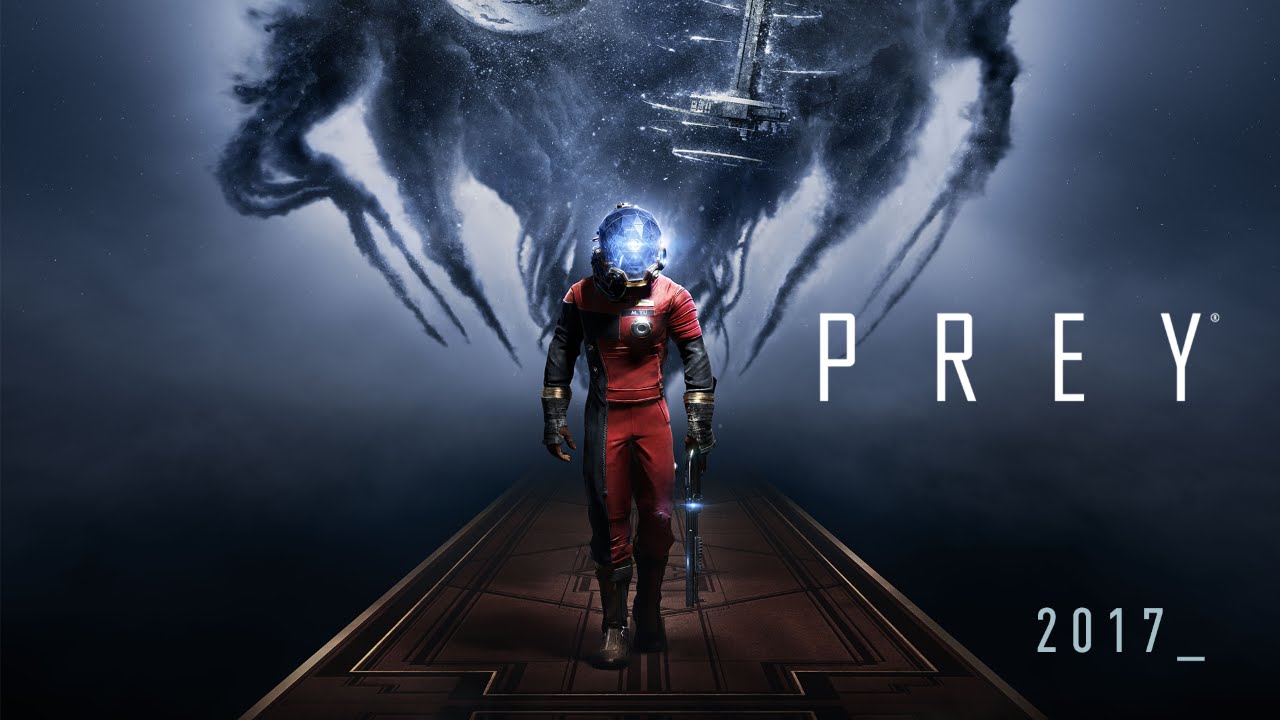A first-person shooter that plays like an elaborate survival simulation with light RPG elements, this game is great for those who enjoy a detailed plot and ominous atmosphere alongside customization options that allow for a great number of solutions to each problem.
Sleuthing in Space
After one of the most memorable introductions I've seen in any game (if you've played through the tutorial and started the actual game, you'll know what I mean, and if you haven't, please don't spoil it for yourself), you'll find yourself on a space station just after a disaster has struck.
Most of the game is spent making your way through each section of the station, learning about what happened and deciding on what to do next, all while doing your best to avoid being killed by any of the beings occupying the station.
While you are given quest goals to accomplish, there isn't a set method or path to take to accomplish them and you are free to wander the station however you like, limited mostly by which parts of the station have broken down and what abilities you currently have. There are a great many ways to enter a room (keycode, hacking, air vents, etc.), you just have to figure out a method that will work for you with your current build.
Although there are several NPCs you can meet and interact with, the majority of the story is told through records left behind as audio files on voice recorders and as emails on workstations. A few video records exist as well, but there are often other visual clues around each scene to give you some idea as to what was going on when disaster struck, such as object and enemy placement as well as crew member remains.
Despite the setting being in space, most of the game takes place on the station itself, but there is a bit of spacewalking that can be extremely disorienting. Since any spacewalking based around objectives tends to be close to the station, most spacewalking can be avoided, but there's still plenty to discover for those who want to explore a bit more.

Super Customization
Character abilities can be gained through upgrades to your spacesuit or through use of neuromods, a technology being developed on the station which can provide you with some typical abilities (hacking, repair, medical knowledge, physical boosts, etc.) and some that are more experimental (energy blasts, telepathy, transformation, etc.). Decisions on what chipsets or neuromods to use can greatly affect gameplay, offering a lot of variation for different playstyles.
The game also offers some cosmetic variation, giving you the choice of being male or female at game start. Whichever you choose, you're still the same person and have the same relationship with each of the crew members, but the decision will affect what voice you listen to throughout the game as well as any videos or photos of your character found throughout the station.
Customization is increased even further by survival mode options such as weapon degradation, oxygen leaks from your suit, and infliction of traumas.
I played this game shortly after suffering a head injury (I am obligated to say that you should avoid playing intensive games such as first-person shooters after suffering head injuries) and when I used the optional trauma settings, I found myself wincing in pain after my character had been injured.
The in-game concussion effect was triggering my real-life concussion symptoms. I couldn't help but be impressed by this. If you have visual sensitivities, I'd recommend keeping this setting off. If you want to experience what having a concussion is like, well, this probably won't do it, but it could be a fun experience and is certainly worth playing around with at least once.

A Story Worth Repeating
The major plot essentially remains the same no matter your path, but your choices still feel like real choices and will affect your path through the game as well as your ending. There is a lot to be discovered on the station and it isn't possible to see it all in a single playthrough, particularly since some choices will influence your encounters. This means there are plenty of new discoveries to be made on a second or third playthrough and, if you make different decisions on building your character, the gameplay can be drastically different as well.
Because of the way the plot was presented (and partly from a grudge with a different game, which "kindly" railroaded me), I completed my first playthrough without using a single neuromod. I would recommend this method of first playthrough to anyone who loves puzzles and coming up with creative solutions for problem solving (and anyone who doesn't want to see a horrific animation of sticking a needle in your own eye, by which I was quickly disturbed early on in my second playthrough). For those who prefer easier solutions to puzzles, steadily boosting up on neuromods throughout the game to become a superpowered agent of death and destruction is also a legitimate strategy.
No matter your playstyle, there's plenty to enjoy with the high-quality thriller atmosphere created through the visuals, sound, and bits of lore spread throughout the station that make it worth returning to the game once completed.

What's in a Name?
As great as this game is, it does have a major flaw. Terrible decisions were made in the naming of this game. Prey (2006) was a fun game and a lot of players wanted a sequel. I suppose it makes sense to make a first-person shooter and name it "Prey" to ride the wave of fans wanting more, but there are a few problems with that. For one thing, this game has absolutely nothing to do with Prey (2006). The only thing they really have in common is being very enjoyable first-person shooters (though even that may be a stretch since it's debatable whether the 2017 version should even be considered a "shooter").
A second problem is that the name is riding on another game's reputation when this game deserves a franchise of its own. I loved the original Prey and was ready to hate this game going into it, but, once I ignored its name, I ended up liking it even more than the first one. The complexities of the plot and the cleverness of the leveling system make it a great game that deserves its own franchise, not this "Prey" nonsense that leaves a bad taste in my mouth.
The biggest reason that "Prey" is a bad title for this game is that it doesn't describe the game at all. There is no "prey" in the game. You are not prey, the enemy you combat in the game is not your prey. "Prey" doesn't suit the game in the least. Prey (2006) had a very clever title in that you were prey and there was a spiritual aspect to the game which gave a secondary meaning of "Pray." It was a great title for that game and I think this game deserves a similarly clever title.
That is why I call this game Out of Sight. It started as a joke a friend made that we should rename the game "Attack of the Office Furniture," to which I added "Space in Terror Extreme" making the acronym AotOF: SiTE, mutating that to Out of Sight. Out of Sight works well for this game because the enemy is out of sight and, in many ways, your position on the space station is out of site. Just like Prey/Pray, the game has a Sight/Site theme that works very well for it.
So, I encourage you, dear reader, to check out this game if you haven't and to tell all your friends about "Out of Sight."
Quick Reference:
This game is an elaborate survival simulation with an unfortunate name.
Best played with the willingness to find creative solutions to your problems.
Strengths:
• Excellent atmosphere.
• Intriguing plot.
• Great versatility in play options and customization of character builds.
Weaknesses:
• An unfortunate title.
• Spacewalking can be disorienting.


